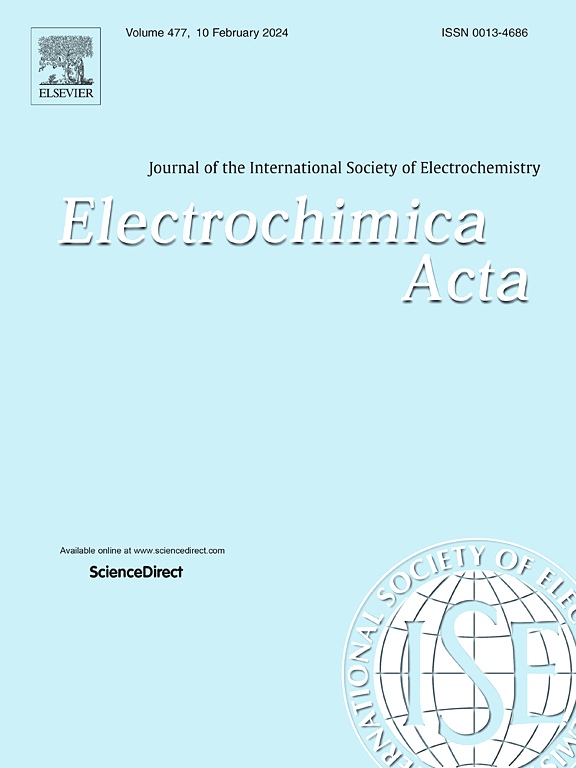摩擦挤压镁合金的腐蚀行为:晶粒细化和颗粒破碎效应
IF 5.6
3区 材料科学
Q1 ELECTROCHEMISTRY
引用次数: 0
摘要
提高传统镁合金在各种环境条件下(从碱性到酸性)的耐腐蚀性,仍然是其广泛工业应用的关键要求。本文研究了摩擦挤压(FE)对铸态Mg和Mg- 3si合金组织细化的影响及其对合金腐蚀行为的影响。FE处理通过减小晶粒尺寸和消除组织孪晶,有效地细化了镁合金的微观组织。同时使Mg-3Si合金中的阴极Mg2Si颗粒分布均匀化、碎片化。晶粒细化和颗粒破碎对整体腐蚀反应都有显著影响,这一点从fe处理样品中观察到的阴极动力学增强中可以看出。时间分辨的Mg2+溶解电流测量,结合动电位极化分析,表明与fe处理的Mg- 3si合金相比,fe处理的Mg中阴极诱导的阳极溶解水平增加。这些实验结果为镁合金耐腐蚀的基本机制提供了新的见解,强调了固态加工技术和初始合金成分在决定其腐蚀行为中的关键作用。本文章由计算机程序翻译,如有差异,请以英文原文为准。

Corrosion Behavior of Friction Extruded Magnesium Alloys: Grain Refinement and Particle Fragmentation Effect
The enhancement of corrosion resistance in conventional magnesium alloys across a spectrum of environmental conditions, from alkaline to acidic regimes, remains a pivotal requirement for their widespread industrial adoption. This study investigates the impact of Friction Extrusion (FE) on microstructural refinement and its consequent influence on the corrosion behavior of cast Mg and Mg-3Si alloys. FE treatment effectively refined the magnesium microstructure by diminishing grain size and eliminating microstructural twins. Additionally, it homogenized the distribution and fragmented the cathodic Mg2Si particles in the Mg-3Si alloy. Both grain refinement and particle fragmentation markedly influenced the overall corrosion response, evident from the heightened cathodic kinetics observed in FE-processed samples. Time-resolved measurements of Mg2+ dissolution current, coupled with potentiodynamic polarization analyses, demonstrated an increased level of cathodically induced anodic dissolution in FE-processed Mg compared to the FE-treated Mg-3Si alloy. These experimental findings offer novel insights into the fundamental mechanisms governing corrosion resistance in magnesium alloys, underscoring the critical roles of solid-phase processing techniques and initial alloy compositions in determining their corrosion behavior.
求助全文
通过发布文献求助,成功后即可免费获取论文全文。
去求助
来源期刊

Electrochimica Acta
工程技术-电化学
CiteScore
11.30
自引率
6.10%
发文量
1634
审稿时长
41 days
期刊介绍:
Electrochimica Acta is an international journal. It is intended for the publication of both original work and reviews in the field of electrochemistry. Electrochemistry should be interpreted to mean any of the research fields covered by the Divisions of the International Society of Electrochemistry listed below, as well as emerging scientific domains covered by ISE New Topics Committee.
 求助内容:
求助内容: 应助结果提醒方式:
应助结果提醒方式:


